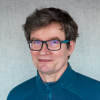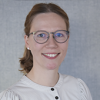Aquaculture is a growing industry worldwide but faces many challenges such as wastewater and waste management, losses from disease, and greenhouse gas emissions. So finding new solutions is essential to enhancing the sustainability of both land-based and marine salmon farming in the Nordic countries.
The nine new projects granted funding involve researchers from Finland, Sweden, Norway, Iceland, the Faroe Islands, Denmark, Estonia and Latvia.
Nordic added value
Kjell Maroni is Chair of the Programme Committee for the Nordic Research and Innovation Programme for Sustainable Aquaculture, as well as R&D Director of the Norwegian Seafood Research Fund (FHF). Mr Maroni explains that the nine research projects were selected not only for their high scientific quality and potential for Nordic added value, but also for their focus on knowledge and technologies to benefit the Nordic aquaculture industry within the foreseeable future.
“The Nordic region is strong, especially when it comes to technologically advanced, knowledge-based aquaculture,” says Mr Maroni. “To maintain and strengthen this position, it is important that we promote research efforts between our countries. Additionally, each of the Nordic countries has dynamic research communities, and this cooperation makes them even stronger. This will fortify the Nordic region’s position in two ways – in terms of actual aquaculture production within the industry, and also as a unified research region when competing for funding from sources such as the EU.”
Director of NordForsk Arne Flåøyen also emphasises the value of so many countries coming together to conduct aquaculture research:
“The Nordic countries have a long history of aquaculture production. For the western Nordic countries such as Norway, the Faroe Islands and Iceland, aquaculture is a large and important industry, while in the eastern Nordic and Baltic countries this industry is less developed. Nordic research cooperation promotes networking and the sharing of expertise, in addition to generating new knowledge towards more sustainable production. This is an important step towards making the Nordic region the world’s most sustainable region by 2030.”
Background for the programme
The Nordic countries are at the cutting edge of aquaculture technology, feed, and genetics. The aquaculture sector has the potential for growth in all the Nordic countries and independent regions as well as in the Baltic Sea Region. High product quality, food safety ("clean, safe and fresh") and large-scale export of aquaculture products can put the region in a pole position in sustainable aquaculture. But achieving success will require increased focus on knowledge and innovation.
Research investments in the countries and regions behind the programme have facilitated the development of a wide range of robust public and private knowledge environments. The Nordic Research and Innovation Programme for Sustainable Aquaculture will work to bring these environments together to promote collaboration and knowledge exchange. The programme will add value to Nordic societies that far exceeds the scope of its financial framework.
Funding
The maximum amount of funding available per project is NOK 10 million. The projects will be funded through a virtual common pot, which means that the national funding agencies will fund their respective participants in the funded projects.
List of projects
- Machine learning applied to predicting and preventing production loss in aquaculture (DigiHeart)
Project leader: Ida Beitnes Johansen, Norwegian University of Life Sciences
Participating countries: Norway, Sweden and Faroe Islands
- FaciLitating detection, understAnding production, and improVing mitigation of undesired taste and Odour compoUnds in aquacultuRe (FLAVOUR)
Project leader: Oskar Modin, Chalmers University of Technology, Sweden
Participating countries: Denmark, Finland and Sweden
- Bio-conversion of non-food bio-resources to novel feeds for salmonids - a Nordic approach
Project leader: Torbjörn Lundh, SLU - Swedish University of Agricultural Sciences
Participating countries: Finland, Norway and Sweden
- Non-Food Organic Resources-based feeds optimised for salmon until post-smolt stages
Project leader: Mette Sørensen, Nord University, Norway
Participating countries: Denmark, Latvia and Norway
- Sustainable aquaculture feed based on novel biomass from wood by-products
Project leader: Volha Shapaval, Norwegian University of Life Sciences
Participating countries: Iceland, Sweden, Norway and Estonia
- RAS-TOOLS: A microbial toolbox for RAS production and innovation
Project leader: Håkon Dahle, University of Bergen, Norway
Participating countries: Finland, Norway and Denmark
- Physiology shapes the happy salmon – a systems approach to sustainable feeds for stimulation of growth, welfare and survival (Happy salmon)
Project leader: Elisabeth Jönsson Bergman, University of Gothenburg, Sweden
Participating countries: Iceland, Sweden and Norway
- Intelligent farming and health control in landbased recirculating aquaculture systems
Project leader: Britt Bang Jensen, Norwegian Veterinary Institute, Norway
Participating countries: Finland, Norway and Denmark
- Mitigating off-flavour compounds geosmin and 2-methylisoborneol by applying capacitive deionization and nanotechnology in RAS
Project leader: Mark Bayley, Aarhus University, Denmark
Participating countries: Denmark, Norway, Sweden



